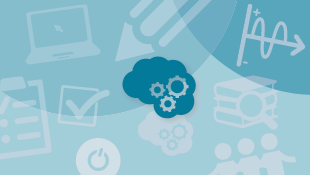-
Courses

Courses
Choosing a course is one of the most important decisions you'll ever make! View our courses and see what our students and lecturers have to say about the courses you are interested in at the links below.
-
University Life

University Life
Each year more than 4,000 choose University of Galway as their University of choice. Find out what life at University of Galway is all about here.
-
About University of Galway

About University of Galway
Since 1845, University of Galway has been sharing the highest quality teaching and research with Ireland and the world. Find out what makes our University so special – from our distinguished history to the latest news and campus developments.
-
Colleges & Schools

Colleges & Schools
University of Galway has earned international recognition as a research-led university with a commitment to top quality teaching across a range of key areas of expertise.
-
Research & Innovation

Research & Innovation
University of Galway’s vibrant research community take on some of the most pressing challenges of our times.
-
Business & Industry

Guiding Breakthrough Research at University of Galway
We explore and facilitate commercial opportunities for the research community at University of Galway, as well as facilitating industry partnership.
-
Alumni & Friends

Alumni & Friends
There are 128,000 University of Galway alumni worldwide. Stay connected to your alumni community! Join our social networks and update your details online.
-
Community Engagement

Community Engagement
At University of Galway, we believe that the best learning takes place when you apply what you learn in a real world context. That's why many of our courses include work placements or community projects.
Reflective practice and reflective writing
Reflective Practice
Many university courses will require you to engage in reflective practice. Reflective practice refers to thinking deeply about a particular activity that you are doing or have done, and ensuring that the insights you glean through reflection influence your future activities. Reflective practice, then, is a cycle or ‘virtuous circle’, as illustrated below.

An activity could include: attending a lecture or participating in a tutorial (or a series of lectures and tutorials), completing an assignment, working with a team, work experience or work placement, or spending a semester abroad.
Work placement and work-based learning are an integral part of many courses (for example, in nursing and other health sciences, where students go on work placement from their first year of study; many other courses involve placement in 3rd or 4th year), and an optional element of many others (for example, science, engineering, and business – find out more here). You are likely to be asked to reflect on your experiences and your learning in the workplace.
Usually, your lecturer will give you guidance to help you with the task of reflection, and with writing up your learning from reflection. You may be asked to write and submit a reflective piece at regular intervals (for example, on a weekly or fortnightly basis), or to produce a longer reflection that charts and summarises your learning journey towards the end of the semester or academic year.
If you are not used to reflective practice and reflective writing, it can take a little time to develop the skills needed to do it well. It can be difficult to think or to write about yourself, your actions, and your thoughts objectively. If you have got used to observing the conventions of academic writing, in which you are usually expected to take a formal and impersonal tone, it can be tricky to introduce the personal pronoun (“I”) into your writing. Remember that reflective writing is very different to academic writing and many students find it challenging to switch between these two modes of thinking and writing.
See our top tips for reflective practice and writing for some advice on approaching reflection and reflective writing.
















